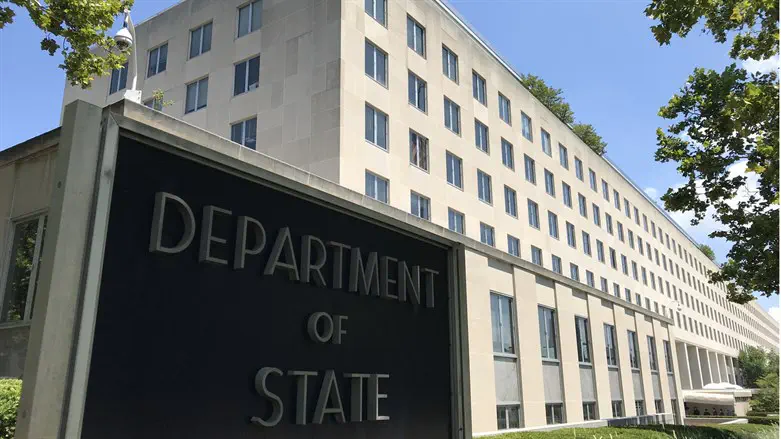
The US on Tuesday poured cold water on the idea that a normalization agreement between Israel and Saudi Arabia is near, with a State Department spokesperson saying there is still work to be done.
Deputy State Department spokesperson Vedant Patel made the comments when asked by a reporter about US National Security Council Spokesman John Kirby’s comments last week that a “basic framework” was in place for a potential deal.
Patel clarified that “many of the key elements of a pathway towards normalization are now on the table, and there is broad understanding of those elements, which we’re certainly not going to get into the specifics of these diplomatic engagements publicly.”
“What I will also say is that this requires – the specifics require an incredible amount of legwork, diplomacy, discipline, rigor, and all of the stakeholders being deeply engaged in this. I will note, though, we don’t have a formal framework and we don’t have the terms ready to be signed. There’s still lots of work to do, and we’re continuing to work that process,” he stated.
“We believe, though, as part of our efforts to advance a more peaceful, secure, and prosperous and stable Middle East region, that continuing our support for full normalization with Israel and continue to talk to our regional partners about how more progress can be made. And that’s going to – what we’re going to continue to stay focused on,” added Patel.
Kirby said on Friday the US was still careful about talking to the public about what the framework would look like and what each side would be expected to do, while also noting, “So, I would just say, watch this space; we’re continuing to work at this. So, you know, until you negotiate everything, you haven’t really negotiated anything final.”
Meanwhile, sources told Reuters on Friday that Saudi Arabia is determined to secure a military pact requiring the United States to defend the kingdom in return for opening ties with Israel and will not hold up a deal even if Israel does not offer major concessions to Palestinian Arabs.
While an Israeli-Saudi deal is widely expected to include Israeli concessions towards the Palestinian Authority, and Secretary of State Antony Blinken recently said that the Palestinian Arab issue will be part of a normalization agreement, three sources told Reuters that the Palestinian Arab core demand for statehood would take a back seat.
Prime Minister Benjamin Netanyahu said during his speech to the UN General Assembly last week that "I believe that we are at the cusp of a historic peace between Israel and Saudi Arabia. Such a peace will go a long way to ending the Arab Israeli conflict."
Two days before Netanyahu’s speech, Saudi Crown Prince Mohammed bin Salman commented on the negotiations with Israel in an interview with Fox News.
"Every day we get closer, it seems it's for the first time real one serious. We get to see how it goes," he said, adding his country could work with Israel, no matter who is in charge and calling a potential deal "the biggest historical deal since the end of the Cold War."
